Find Your Perfect Wood Product
If you find a product you like, reach out to us for more details and assistance.
Cherry
American cherry lumber enchants with its deep, warm tones and refined silky grain. Celebrated for its exceptional workability and resilience, it epitomizes timeless elegance and the rich heritage of American woodworking.
Length: 7-10 feet
Thickness: 4/4, 6/4, 8/4
- Common Name(s): Black Cherry, American Cherry
- Scientific Name: Prunus serotina
- Distribution: Eastern North America
- Tree Size: 50-100 ft (15-30 m) tall, 3-5 ft (0.3-0.6 m) trunk diameter
- Average Dried Weight: 35.0 lbs/ft³ (560 kg/m³)
- Janka Hardness: 950 lbf (4230 N)
- Crushing Strength: 7110 lbf/in² (49 MPa)
Heartwood: Light pinkish brown when freshly cut, darkening to a medium reddish brown with time and light exposure.
Sapwood: Wide, pale yellowish color, commonly found along the outer edges of the boards.
Grain: Usually straight, but can have figured pieces with curly grain patterns.
Texture: Fine, even texture with moderate natural luster.
Heartwood is very durable and resistant to decay, although it's not typically used in exterior applications.
Known as one of the best all-around woods for workability. Stable, straight-grained, and machines well. Can sometimes result in blotchy stains; using a sanding sealer or a gel-based stain is recommended. High wastage factor due to common sapwood.
- Cabinetry
- Fine furniture
- Flooring
- Interior millwork
- Veneer
- Turned objects
- Small specialty wood items

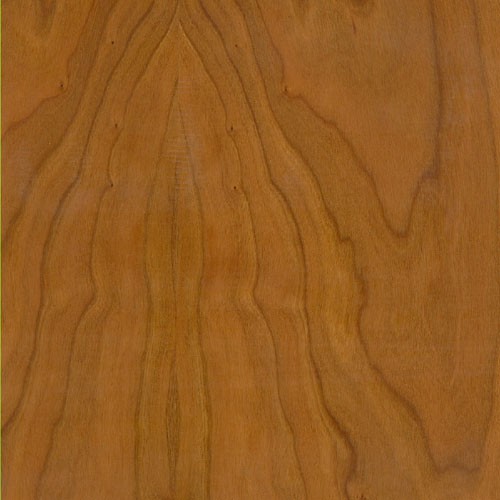
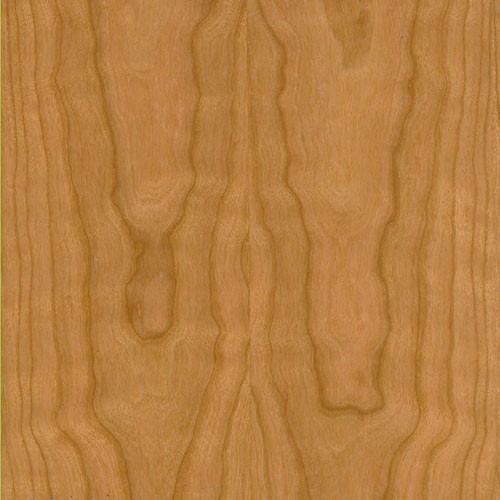
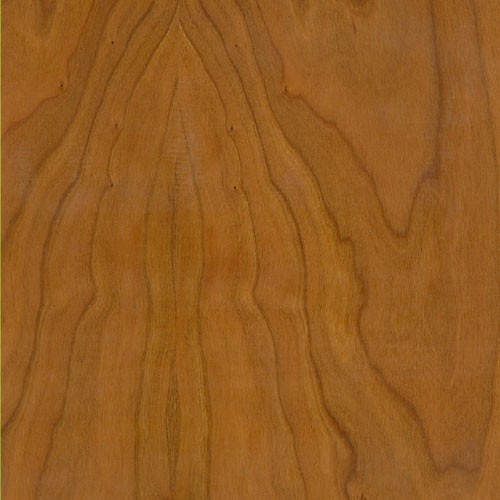
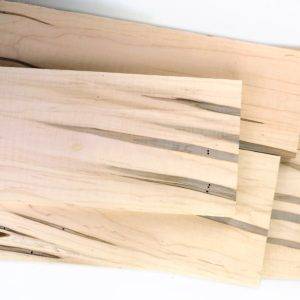
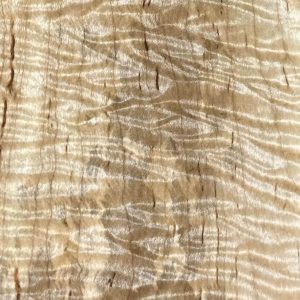
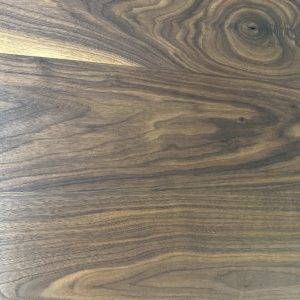
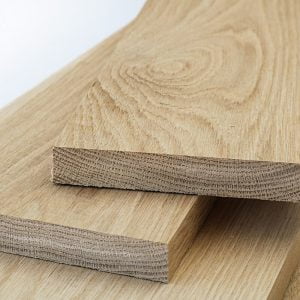
Black Cherry develops a rich reddish-brown patina as it ages, which is frequently imitated with wood stains on other hardwoods like Yellow Poplar (Liriodendron tulipifera). This aging process can be accelerated by exposing the wood to direct sunlight in a controlled manner.
Note: Not to be confused with Sweet Cherry (Prunus avium), which is native to Europe and Asia and is the primary source of edible cherries. While the fruit of Black Cherry is technically edible, the tree is primarily valued for its lumber, unlike P. avium which is grown for its fruit.